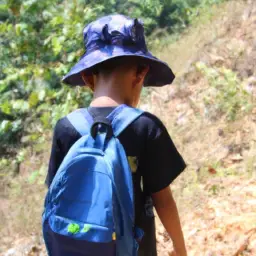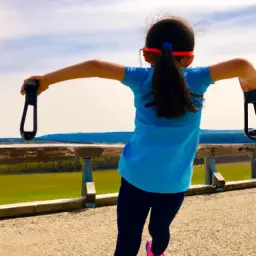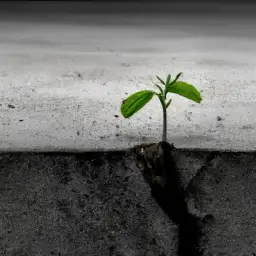Are you interested in understanding how cultural factors influence the development of grit and resilience in children? Grit and resilience are essential traits that enable individuals to overcome obstacles and achieve success in life. While these traits are often considered innate, research has shown that they can be nurtured and developed through deliberate practice and exposure to adversity.
In this article, we will explore the role of culture in cultivating grit and resilience in children. We will delve into the impact of cultural beliefs, values, and practices on the development of these traits. We will also discuss the challenges and opportunities for promoting grit and resilience in children from diverse cultural backgrounds.
By the end of this article, you will have a deeper understanding of how cultural factors shape the development of grit and resilience and how you can support the growth of these traits in the children in your life.
Key Takeaways
- Grit and resilience are essential traits for success in life, but their development is impacted by cultural factors and adversity.
- Strategies for cultivating grit and resilience include encouraging a growth mindset, building self-efficacy, and fostering social connections.
- Parental involvement is crucial for promoting grit and resilience in children, but not all parents have the resources to provide support.
- Schools and teachers can play a significant role in creating a positive and supportive learning environment that helps students develop skills to thrive in adversity.
Understanding the Definition of Grit and Resilience
You gotta understand that grit and resilience are two different things, but they both involve being able to bounce back from challenges and setbacks.
Defining grit is a bit more complex than resilience, as it encompasses not just the ability to persevere through difficulty, but also a passion for long-term goals and the ability to maintain effort and interest over time. In other words, grit involves both persistence and passion.
Developing resilience, on the other hand, is more about being able to adapt to changing circumstances and recover quickly from adversity. This can involve coping strategies like seeking social support, reframing negative events in a positive light, and cultivating a growth mindset that sees challenges as opportunities for learning and growth.
Both grit and resilience are important for children to develop, as they will inevitably face challenges and setbacks throughout their lives. By fostering these qualities early on, parents and educators can help children develop the skills and mindset needed to overcome obstacles and thrive in the face of adversity.
The Role of Culture in Developing Grit and Resilience
Discover how cultural norms shape the development of determination and adaptability in young individuals. Cultural influences have a significant impact on how children develop grit and resilience. The values, beliefs, and traditions in a society can shape the way children approach challenges and setbacks. For example, in some cultures, there is a strong emphasis on collective success and community support, which can foster a sense of determination and perseverance in children. In contrast, in other cultures, individual success and achievement may be prioritized, which can lead to a focus on personal growth and resilience.
Cross-cultural comparisons can provide insight into how different cultural norms impact the development of grit and resilience in children. A table comparing different cultural values and their corresponding attitudes towards grit and resilience can be helpful in understanding these differences. For instance, in collectivist cultures, there may be a stronger focus on perseverance in the face of adversity, whereas in individualistic cultures, there may be more emphasis on self-reliance and independence. Understanding these cultural factors can help parents, educators, and policymakers support children’s development of grit and resilience in diverse cultural contexts.
The Impact of Adversity on Grit and Resilience
Picture a child growing up in a challenging environment, where they face obstacles and hardships on a daily basis. This child is more likely to develop grit and resilience as they learn to overcome adversity. However, the effects of trauma can also have a significant impact on their ability to develop these qualities.
Experiencing traumatic events can hinder a child’s ability to cope with stress and setbacks, making it more difficult for them to bounce back from difficult situations. This is where the importance of support comes in.
Having a strong support system, whether it’s from family, friends, or a therapist, can help a child process their experiences and learn healthy coping mechanisms. By providing a safe and nurturing environment, adults can help children develop the resilience and grit needed to succeed in life despite the challenges they may face.
Strategies for Cultivating Grit and Resilience in Children
To help your children develop grit and resilience, you can encourage a growth mindset by praising their efforts and progress instead of just their achievements.
Building their self-efficacy by giving them opportunities to tackle challenges and providing positive feedback can also help.
Additionally, fostering social connections through supportive relationships and community involvement can provide a sense of belonging and support during tough times.
Encouraging a Growth Mindset
Developing a growth mindset can help children build resilience and grit in the face of challenges. A fixed mindset, where children believe that their abilities are predetermined and unchangeable, can hinder their ability to persevere through difficulties.
On the other hand, a growth mindset encourages children to see challenges as opportunities for growth and learning. Praising effort and hard work, rather than innate talent, can help children develop a growth mindset and build resilience.
In order to encourage a growth mindset in children, it’s important to foster a culture of praise that values perseverance and effort. Instead of simply praising children for their achievements, parents and teachers can also acknowledge the hard work and determination that went into them.
This can help children see that success is not just about innate ability, but also about the effort they put in. By emphasizing the importance of a growth mindset, parents and teachers can help children develop the resilience and grit they need to overcome obstacles and achieve their goals.
Building Self-Efficacy
Building self-efficacy can empower you to believe in your ability to overcome challenges and achieve your goals. It’s the perception of your own competence in a specific area or task. When you have high self-efficacy, you’re more likely to take on challenges, persist in the face of obstacles, and bounce back from setbacks.
Here are some ways to build your self-efficacy:
- Positive feedback: When you receive positive feedback, it reinforces your belief in your abilities. Seek out feedback from others and give yourself credit for your accomplishments.
- Goal setting: Setting specific, achievable goals allows you to see progress and build confidence. Break down larger goals into smaller, manageable steps and celebrate each milestone you reach.
It’s important to remember that self-efficacy is not fixed. It can be developed and strengthened over time. By focusing on your strengths, practicing self-compassion, and seeking out opportunities to challenge yourself, you can build your self-efficacy and become more resilient in the face of adversity.
Overall, building self-efficacy is an important factor in developing grit and resilience in children. By empowering them to believe in their abilities, they’re more likely to take on challenges and persist in the face of obstacles. Encouraging positive feedback and goal setting can help them develop their self-efficacy and become more confident and resilient individuals.
Fostering Social Connections
Fostering social connections can be a fun and rewarding way to help children develop their grit and resilience. Social support is crucial for children to develop a sense of belonging and to feel connected to others. By providing children with opportunities to interact with others, they can learn important skills such as communication, empathy, and problem-solving.
Community involvement is also an essential aspect of fostering social connections. When children are involved in their community, they develop a sense of responsibility and ownership. They learn that their actions can have an impact on those around them, and they become more aware of the needs of others. By working together with others towards a common goal, children can learn teamwork and collaboration skills that will serve them well throughout their lives.
Challenges and Opportunities for Promoting Grit and Resilience
You can identify potential obstacles and leverage them as opportunities to nurture grit and resilience in children.
For instance, parental involvement is an essential factor for promoting grit and resilience in children. However, not all parents are equipped or have the resources to provide adequate support.
To address this, schools can offer workshops and training for parents to learn effective strategies for fostering resilience and grit in their children. This way, parents can feel empowered to provide the necessary support and guidance for their children’s development.
Another obstacle is the school environment, which can either hinder or promote the development of grit and resilience in children.
Teachers play a crucial role in creating a positive and supportive learning environment that encourages students to take risks, persevere, and bounce back from setbacks. To do this, teachers can incorporate growth mindset principles into their teaching practices, provide opportunities for collaborative learning, and offer challenges that push students out of their comfort zones.
By creating a safe and supportive environment that values effort and resilience, schools can help students develop the skills they need to thrive in the face of adversity.
Frequently Asked Questions
How can parents and teachers ensure that the cultural values they are promoting align with the development of grit and resilience in children?
To ensure that the cultural values you’re promoting align with the development of grit and resilience in children, it’s important to have open communication and collaboration between parents and teachers. By working together, you can identify and prioritize the values that are most important for your child’s development.
You can also discuss ways to reinforce these values both at home and in the classroom. It’s also important to recognize and respect cultural differences and find ways to incorporate them into the promotion of grit and resilience.
By actively promoting cultural values alignment and working together, parents and teachers can provide a supportive and consistent environment for children to develop these important traits.
Are there any specific cultural factors that can hinder the development of grit and resilience in children?
Cultural barriers can hinder the development of grit and resilience in children. Some cultures may prioritize conformity over taking risks and overcoming adversity. This can lead children to feel discouraged from trying new things or taking on challenges.
Additionally, certain cultures may stigmatize failure, causing children to fear making mistakes and avoiding difficult situations. However, it’s important to note that cultural barriers can be overcome. By promoting the value of perseverance and encouraging children to take on challenges, parents and teachers can help children develop grit and resilience regardless of cultural background.
How can cultural differences between home and school environments impact a child’s ability to develop grit and resilience?
When it comes to a child’s ability to develop grit and resilience, cultural differences between the home and school environments can play a significant role.
Parental involvement and cultural sensitivity are crucial factors that can impact a child’s ability to develop these traits.
For example, if a child’s home culture places a greater emphasis on obedience, they may struggle to develop grit and resilience because they may not be encouraged to take risks or persevere through difficult situations.
On the other hand, if a child’s school culture emphasizes independence and risk-taking, their home culture may discourage this behavior, making it challenging for them to develop these traits.
Therefore, it’s essential to ensure that parents and educators work together to create a supportive and culturally sensitive environment that allows children to develop grit and resilience.
Are there any long-term effects on a child’s character development if they do not develop grit and resilience during their formative years?
Not developing grit and resilience during childhood can have long-term consequences on a child’s character development. Without these important traits, individuals may struggle to persevere through challenges and may feel defeated by setbacks.
However, it’s important to note that the development of grit and resilience is not solely the responsibility of the child. Support from parents, teachers, and other caregivers can greatly impact a child’s ability to develop these traits. Without the necessary support and guidance, children may struggle to navigate difficult situations and may not learn the coping skills needed to overcome adversity.
The importance of fostering grit and resilience in children can’t be overstated, as these traits are essential for success in both personal and professional endeavors.
How can societal inequalities and systemic barriers affect a child’s ability to cultivate grit and resilience?
Societal barriers and cultural norms can have a significant impact on a child’s ability to cultivate grit and resilience. These factors can create systemic barriers that prevent children from accessing the resources and opportunities necessary to develop these traits.
For example, children from low-income families may face economic barriers that limit their access to quality education, healthcare, and other resources that can help them develop grit and resilience. Additionally, cultural norms that value conformity and obedience over independence and risk-taking may discourage children from developing these traits.
As a result, it’s important to address these societal inequalities and cultural norms to ensure that all children have the opportunity to develop grit and resilience, regardless of their background or circumstances.
Conclusion
Congratulations on completing your exploration of the cultural factors influencing grit and resilience in children! As you’ve learned, grit and resilience are essential attributes that enable children to overcome adversity and achieve their goals. However, these traits are not innate and require cultivation through cultural factors and experiences.
Culture plays a crucial role in shaping a child’s beliefs, values, and behaviors. By understanding and promoting cultural factors that foster grit and resilience, parents, educators, and caregivers can help children develop these essential traits.
Remember, adversity is a natural part of life, and it’s how we respond to it that matters. By providing children with the tools and strategies to face adversity, we can help them build the confidence and persistence they need to succeed.
So, keep exploring, learning, and promoting grit and resilience in your children, and watch them thrive!









































































































